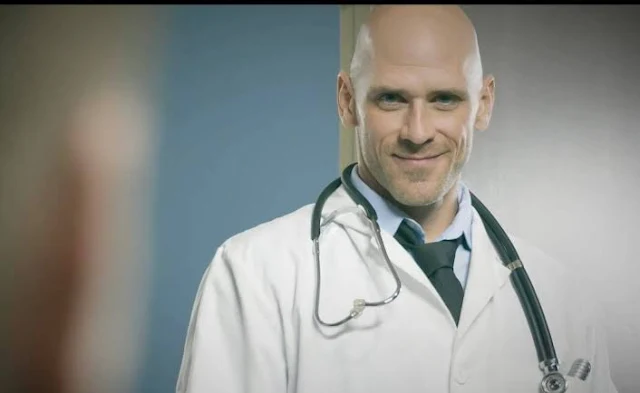Journey to Healing: The Path to Becoming a Doctor
Becoming a doctor is a rigorous and rewarding journey that requires dedication, perseverance, and a genuine passion for healthcare. From the initial steps of undergraduate education to the culmination of years of training and specialization, the path to becoming a doctor is both challenging and fulfilling.
The journey typically begins with undergraduate education, where aspiring doctors lay the foundation for their future medical careers. While specific requirements may vary between medical schools, most applicants are expected to complete a bachelor's degree, preferably in a science-related field such as biology, chemistry, or biochemistry. These undergraduate years are crucial for developing a strong understanding of foundational scientific concepts that will be essential for success in medical school and beyond.
In addition to academic coursework, aspiring doctors often engage in extracurricular activities that demonstrate their commitment to healthcare and their ability to work in diverse settings. Volunteer work at hospitals or clinics, research experiences, and leadership roles in student organizations are all valuable ways for aspiring doctors to demonstrate their dedication to serving others and contributing to the field of medicine.
As students progress through their undergraduate studies, they begin to prepare for the next step in their journey: the Medical College Admission Test (MCAT). The MCAT is a standardized exam that assesses applicants' knowledge of basic scientific concepts, critical thinking skills, and ability to apply these concepts to real-world scenarios. Achieving a competitive score on the MCAT is essential for gaining admission to medical school, and many students spend months preparing for the exam through self-study, review courses, and practice exams.
Once the MCAT is complete, aspiring doctors turn their attention to the medical school application process. This typically involves submitting transcripts, letters of recommendation, a personal statement, and other materials that highlight their academic achievements, extracurricular activities, and motivation for pursuing a career in medicine. The application process is highly competitive, with thousands of qualified applicants vying for a limited number of spots at medical schools across the country.
For those fortunate enough to receive acceptance letters, the journey continues with four intense years of medical school. Medical school curriculum is divided into two main components: preclinical and clinical training. During the preclinical years, students focus on mastering the basic sciences, including anatomy, physiology, biochemistry, pharmacology, and pathology. This classroom-based instruction provides the foundation for understanding the human body and the mechanisms of disease.
In addition to classroom learning, medical students participate in hands-on clinical experiences that allow them to apply their knowledge in real-world settings. These clinical rotations take place in hospitals, clinics, and other healthcare facilities, where students work alongside experienced physicians and other healthcare professionals to provide patient care, observe medical procedures, and develop their clinical skills. Rotations typically cover a wide range of specialties, giving students exposure to different areas of medicine and helping them determine their career interests.
As medical students progress through their clinical rotations, they begin to prepare for the next phase of their training: residency. Residency is a period of supervised, specialty-specific training that follows medical school and is designed to prepare physicians for independent practice in their chosen field. Residency programs vary in length and structure depending on the specialty, ranging from three to seven years.
During residency, physicians-in-training work closely with attending physicians to provide patient care, participate in surgical procedures, and manage complex medical cases. They also have opportunities to engage in research, teaching, and other scholarly activities that contribute to their professional development. Throughout residency, residents are evaluated based on their clinical performance, professionalism, and adherence to ethical standards, with the goal of achieving competency in their chosen specialty.
In addition to completing residency requirements, physicians must also pass a series of licensing exams to practice medicine independently. For MDs, this typically involves passing the United States Medical Licensing Examination (USMLE), while DOs must pass the Comprehensive Osteopathic Medical Licensing Examination (COMLEX). These exams assess physicians' knowledge, skills, and ability to provide safe and effective patient care, and passing them is a prerequisite for obtaining a medical license in most states.
Once licensed, physicians have the option to pursue board certification in their specialty through the relevant certifying board. Board certification demonstrates a physician's commitment to maintaining high standards of practice and staying up-to-date on the latest advances in their field. To become board-certified, physicians must meet specific eligibility criteria, which may include completing additional training, passing additional exams, and demonstrating ongoing professional development.
Throughout their careers, physicians are expected to engage in lifelong learning and professional development to stay current in their field and provide the highest quality care to their patients. This may involve attending continuing medical education (CME) conferences, participating in research projects, publishing scholarly articles, and collaborating with colleagues to improve healthcare delivery and outcomes.
In conclusion, the journey to becoming a doctor is a challenging yet rewarding process that requires dedication, perseverance, and a lifelong commitment to learning and service. From the early days of undergraduate education to the culmination of years of training and specialization, aspiring doctors embark on a transformative journey that prepares them to make a meaningful difference in the lives of others through the practice of medicine.













0 Comments